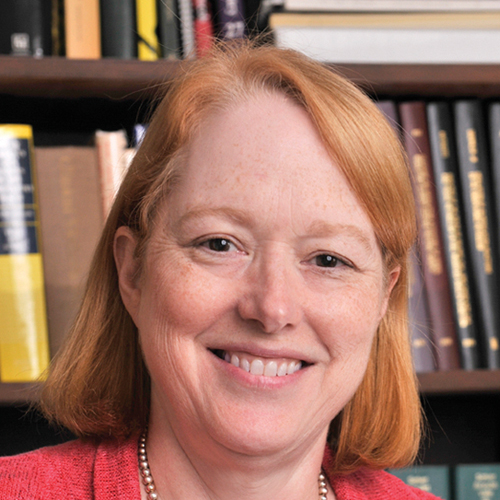Hofmann honored for her contributions to the field of protein lipidation
The American Society for Biochemistry and Molecular Biology has named Sandra Hofmann at the University of Texas Southwestern Medical Center at Dallas the winner of the Avanti Award in Lipids.

I am honored to have received this award and am grateful to my colleagues for the nomination and to Avanti Polar Lipids for their support of this award. Lipid enzymology is a difficult and rewarding field pioneered by a number of courageous individuals and it has been a privilege to continue to work in this great tradition. It is particularly exciting to see protein lipidation being recognized. The potential for new discovery in this area is enormous. It would not surprise me to be treating future patients with cancer or neurological disorders with protein palmitoylation inhibitors in the same way that protein kinase inhibitors are used today.
—SANDRA HOFMANN
Hofmann, a professor in the internal medicine department at UT-Southwestern, focuses her research on fundamental questions in lipid metabolism and protein lipidation, which has led to novel insights into the treatment of human diseases.
When Hofmann set up her own lab at UT-Southwestern, the enzymology of palmitoylation, which is the attachment of fatty acids to proteins, was unknown. Hofmann’s research led to the purification of palmitoyl protein thioesterase, or PPT1, an enzyme that removes these fatty acids from proteins. This was the first enzyme identified with a role in protein palmitoylation. The PPT1 gene eventually was mapped to a region in chromosome 1p, which also had been linked to infantile neuronal ceroid lipofuscinosis, or INCL, a devastating neurodegenerative disease in children. Her training as a clinician-scientist helped her make this link and discover that deficiencies in PPT1 cause INCL.
“Hofmann’s research is a superb example of how tackling a fundamental basic science question can lead to discoveries of great clinical significance,” explains Maurine Linder of Cornell University, who nominated Hofmann for the award.
Hofmann later developed the first mouse model of INCL. That mouse model allowed her to develop enzyme-replacement therapy. The addition of intravenous recombinant PPT1 has led to modest improvements in mice and provides the basis for further studies.
Robert Deschenes of the University of South Florida says that “Hofmann’s work is a model of translational science at its best” and that he even uses her work as an example when teaching graduate and medical students.
Hofmann earned her B.A. in chemistry with the highest distinction at the University of Virginia in Charlottesville. She proceeded to earn an M.D. and Ph.D. at Washington University School of Medicine in St. Louis under the mentorship of Philip Majerus. In the Majerus lab, she made seminal contributions to the enzymology of phosphatidylinositol hydrolysis. That work provided her experience in the isolation and characterization of novel enzymes. She left Washington University to pursue postdoctoral training in the laboratory of Nobel laureates Michael Brown and Joseph Goldstein at UT-Southwestern. Hofmann has since remained at UT-Southwestern, where she has risen through the ranks to professor.
In recognition of her research, Hofmann was inducted as a member of the American Society for Clinical Investigation and the American Association of Physicians. She also chairs the Scientific Advisory Board for the Batten Disease Support and Research Association, which allows her to have a sustained influence on the field of disorders of the nervous system.
Hofmann will receive her award in San Diego at the Experimental Biology 2014 meeting, where she will deliver an award lecture. Her lecture will be at 8:30 a.m. Wednesday, April 30, in Room 6A of the San Diego Convention Center.
Enjoy reading ASBMB Today?
Become a member to receive the print edition four times a year and the digital edition monthly.
Learn moreGet the latest from ASBMB Today
Enter your email address, and we’ll send you a weekly email with recent articles, interviews and more.
Latest in People
People highlights or most popular articles

Building a career in nutrition across continents
Driven by past women in science, Kazi Sarjana Safain left Bangladesh and pursued a scientific career in the U.S.

Kiessling wins glycobiology award
She was honored by the Society for Glycobiology for her work on protein–glycan interactions.

2026 ASBMB election results
Meet the new Council members and Nominating Committee member.

Simcox wins SACNAS mentorship award
She was recognized for her sustained excellence in mentorship and was honored at SACNAS’ 2025 National Conference.

From humble beginnings to unlocking lysosomal secrets
Monther Abu–Remaileh will receive the ASBMB’s 2026 Walter A. Shaw Young Investigator Award in Lipid Research at the ASBMB Annual Meeting, March 7-10 in Washington, D.C.

Chemistry meets biology to thwart parasites
Margaret Phillips will receive the Alice and C. C. Wang Award in Molecular Parasitology at the ASBMB Annual Meeting, March 7-10 in Washington, D.C.

